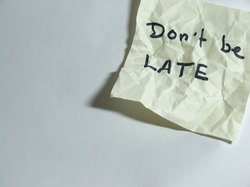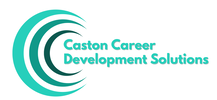 All of your hard work updating your resume, applying for jobs, etc. has finally paid off - and now you've got an interview. You're feeling happy to have gotten a call back about a job that you're really interested in, and really excited to have an interview. But now, you are becoming nervous as your interview approaches. What do you talk about? How should you speak about your work history and experiences? One of the most important things your should do at this point is CALM DOWN and RELAX (and do this throughout your interview as well - it will really make a difference). Now, here are 3 tips to help you prepare for your upcoming interview. 1. Incorporate the STAR technique into your interview During your interview, you can almost guarantee that you will be asked several behavioral interview questions. A behavioral interview is an interview technique that is used by employers/recruiters/hiring managers to get candidates to elaborate more on their responses by discussing specific situations that support their previous experiences. To prepare for behavioral interview questions, the STAR technique is a great tool to use to help walk you through your answer. STAR stands for Situation, Task, Action, and Result. When answering behavioral interview questions, simply provide your response in order of the STAR technique. Situation - Describe the situation or event that you were faced with or encountered. This may have been a problem or a project that was given to you to handle. Make sure you provide your interviewer with a detailed explanation of the situation to help them understand it thoroughly. Remember - they weren't there with you, so be descriptive, but not long-winded. Task - After you describe the situation, describe what tasks or steps needed to be completed in order to handle the situation. Think of this step in comparison to describing the steps to carry out a cooking recipe. Action - Now that you have described the situation and task(s), describe to the interviewer what actions you took to complete the tasks. Don't get caught up on what other members of your group, team, etc. did - make sure to focus on what YOUR actions were specifically. Keep in mind, the interviewer isn't interviewing your team or group - they are only interviewing YOU. So, continue to focus on describing what your specific actions were to complete the tasks at hand. Result - After describing the situation, tasks, and actions, wrap up your response by describing the result of your work. What impact did you actions have to complete the tasks in the particular situation you described? Make sure to focus on what you accomplished, and quantify your response if possible. 2. Use Your Resume As Your "Cheat Sheet" If written well, your resume will be your best "helper" through your interview. Not only have you (hopefully) catered your resume to the position that you're interviewing for, but you hopefully have also written about specific situations and accomplishments that you will also discuss during your interview. If written well, you would have already written your task statements to serve as "notes" throughout responding to behavioral interview questions. 3. Prepare Well Thought Out Follow-Up Questions Many people skip over this step when preparing for the interview. However, by really putting effort into thinking about thoughtful interview questions, it shows your interviewer that you have conducted research on the company and job, and because of your insight - can bring great ideas to the table! Good luck on your interview, and go GET THAT JOB!!!
1 Comment
Oftentimes when looking for employment, many job seekers take that plunge to create the perfect (or not so perfect) resume to begin their job search. You may find yourself struggling to remember all of your duties from a job you held four years ago, searching through old e-mails to pull from previous job descriptions, or just pulling all of your old resumes and simply combining it into one main resume. GUESS WHAT???? That will definitely keep you unemployed.
To be successful and effective in your job search, job seekers should make sure to draft more than one resume that is specifically catered to the position that you are applying for. If you find that you have several career goals/passions, do not pigeonhole yourself by placing such a vast amount of information into one resume. It is a great idea to have resumes that have specific career goals, such as resume catered to Human Resources, another resume catered to the nonprofit sector, etc. Gone are the days of just sending the exact same resume to every company with job openings. According to Kim Isaacs, Monster Resume Expert, "If you have more than one career goal, the best strategy is to develop multiple resumes that target your different objectives". Stay clear of the "one-size-fits-all" resume! If you would like more information regarding creating more than one resume, click the link below: Article Source: http://career-advice.monster.com/resumes-cover-letters/resume-writing-tips/more-than-one-career-goal/article.aspx |
Archives
February 2017
Categories
All
|
Create a free website with Weebly
